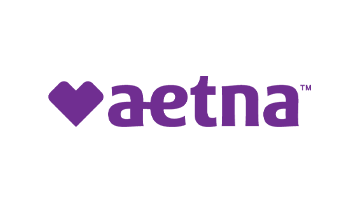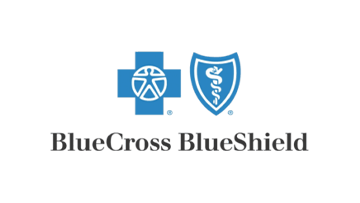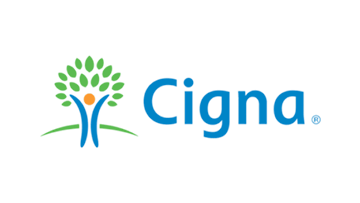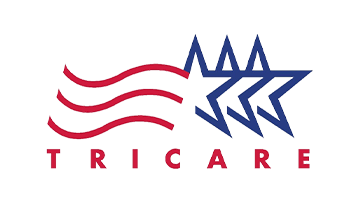Visit Us
Get Directions
Recovery doesn’t stop after treatment—it’s a continuous journey that thrives with the right support, tools, and environment. At Benchmark Transitions, we offer transitional and sober living homes in San Bernardino, California, providing a safe and structured space for individuals to maintain sobriety and work toward independence.
Our sober living program bridges the gap between intensive treatment and everyday life, empowering residents to embrace recovery confidently. If you or a loved one is searching for a supportive sober living home to continue the journey to wellness, Benchmark Transitions is here to help.
Call us today at (800) 474-4848 to learn more about our transitional and sober living options.
Transitional living is a form of supportive housing program that helps individuals in transition from homelessness, drug addiction, mental health issues, incarceration, and other difficult life circumstances. These programs provide individuals with safe and secure housing for a limited period of time (usually 6-24 months). During this time, participants are provided with basic services such as case management, counseling, job skills training, educational support and access to healthcare.
The goal of transitional living is to help individuals build the skills they need to live independently, find gainful employment and rerate into their communities. Through these programs, participants transition from a life of chaos instability to one of stability and-sufficiency.
Our sober living homes in San Bernardino are thoughtfully designed to provide a structured yet comfortable space where individuals can rebuild their lives. At Benchmark Transitions, we focus on creating a community that promotes accountability, growth, and long-term recovery.
Our transitional and sober living homes are ideal for individuals at various stages of recovery, including those:
Whether you’re stepping down from a higher level of care or seeking ongoing accountability, our sober living homes in San Bernardino offer a welcoming space tailored to your needs.
Recovery is about more than abstaining from substances—it’s about learning to thrive in all areas of life. At Benchmark Transitions, our transitional living program helps residents build their skills and confidence to succeed.
Our program includes:

At Benchmark Transitions, our sober living homes are thoughtfully designed to provide a peaceful and nurturing environment. Residents benefit from semi-private rooms that offer privacy and comfort, fully equipped kitchens for shared meal preparation, and common areas that foster connection and camaraderie. Some residences even feature luxurious amenities, including pools and serene outdoor spaces, perfect for relaxation and reflection. These carefully curated spaces create a stable and supportive foundation for recovery.

Our transitional living program offers access to various essential recovery resources. Residents can participate in group therapy sessions through our outpatient treatment programs, group meetings, and wellness activities tailored to their needs. Mindfulness exercises, experiential therapy, and other holistic practices help individuals maintain focus and reinforce the principles they’ve learned during treatment. This integrated support system ensures that residents continuously build recovery skills while developing healthy habits.

Preparing for independence is a central focus of transitional living at Benchmark Transitions. Residents are encouraged to take on daily responsibilities that promote self-sufficiency, such as managing schedules, preparing nutritious meals, and maintaining personal budgets. With guidance from our supportive team, individuals develop practical life skills that empower them to navigate life confidently, laying the groundwork for long-term success in recovery.
At Benchmark Transitions, we believe sustainable recovery is built on healthy habits, supportive relationships, and personal resilience.
How we foster lasting recovery at Benchmark Transitions sober living homes:

At Benchmark Transitions, we emphasize the importance of creating and maintaining healthy routines. Residents are guided in establishing daily habits, including regular exercise, balanced nutrition, and self-care practices. These routines help create a sense of stability and purpose, providing a structured framework supporting physical and mental well-being. Residents build a strong foundation for sustainable recovery by embedding these habits into everyday life.

Every individual’s recovery journey is unique, and our approach reflects that. Each resident collaborates with their care team to develop a personalized relapse prevention plan. This plan is designed to identify potential triggers, outline strategies for managing them, and ensure accountability through actionable steps. By equipping residents with the tools to navigate challenges, we empower them to approach recovery confidently and resiliently.

A strong sense of community is a cornerstone of lasting recovery. At Benchmark Transitions, residents connect with peers with similar recovery goals. This network of encouragement and understanding fosters a supportive environment where individuals can share experiences, celebrate progress, and provide mutual motivation. These relationships create a sense of belonging and reinforce the importance of connection throughout the recovery journey.
If you or a loved one is struggling with substance use or mental health issues and in need of supportive, transitional, or sober living options, contact Benchmark Transitions today to learn more about how our programs can support your recovery.
Our support doesn’t end when residents leave our sober living homes. Benchmark Transitions offers an alumni program to connect former residents to their recovery community and resources.
Alumni program highlights:
This ongoing support helps alumni stay engaged, maintain progress, and build fulfilling, substance-free lives.
Alumni Program

Recovery is an ongoing process, and a stable environment is crucial for maintaining sobriety. San Bernardino’s natural beauty and strong sense of community provide an ideal setting for transitional living. Residents at Benchmark Transitions benefit from the city’s serene backdrop, access to outdoor activities, and proximity to resources that encourage growth and healing.
Our sober living homes in San Bernardino combine these local advantages with evidence-based support, creating a unique recovery experience.
With over 30 years of experience, Benchmark Transitions is a trusted addiction and mental health treatment leader. Our sober living homes in San Bernardino, California, provide a unique blend of structure, support, and compassion, empowering residents to confidently embrace recovery.
What sets us apart:

If you’re ready to take the next step in your recovery journey, Benchmark Transitions will guide you. Our sober living homes in the San Bernardino, California, area provide the structure, support, and community needed to maintain sobriety and build a fulfilling life.
Contact us at (800) 474-4848 to learn more about our transitional and sober living programs. Let us help you create a brighter, healthier future.
Benchmark Transitions works with all major insurance companies and is pleased to be an In Network provider with Aetna, Anthem Blue Cross (accepting most BCBS Blue Card plans), First Health, Kaiser Permanente of Southern California, MHN, TriCare West and Quantum Health.






Eddie is a licensed Marriage and Family Therapist (LMFT) and Certified Drug and Alcohol Counselor with over 13 years of sobriety. His academic journey began at East Los Angeles College, where he obtained his certification in Drug and Alcohol Counseling, and continued to Antioch University Los Angeles, where he earned a Master’s degree in Clinical Psychology, specializing in addiction. Certified with both CCAPP and CAADE, Eddie employs a multi-modal approach in his practice, including DBT, CBT, and solution-focused therapy, to address addiction and co-occurring mental health disorders.
Meet Eddie